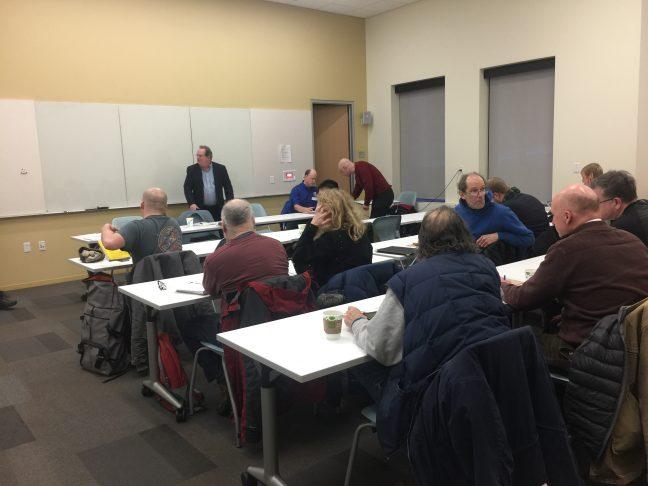The Wisconsin Energy Institute held a panel Tuesday to look at how renewable energy could provide jobs in the Wisconsin economy based on a report from WEI.
The panel emphasized the importance of renewable energy not only to the environment but also to the economy. Gary Radloff, director of Midwest Energy Policy Analysis and researcher at University of Wisconsin, mediated the panel.
“Particularly among young folks, we have people who are interested in getting in to clean energy and this could be a driving force to bring people back to the state,” President and CEO of the Wisconsin Energy Conservation Corporation, Mary Schlaefer stated.
The Wisconsin Jobs Project is part of the American Jobs Project that seeks to address the problem of loss of middle-income jobs and congressional paralysis in the United States, according to the American Jobs website.
The project focuses on Wisconsin’s sensors and controls industry, which produces hardware for efficient technologies in advanced energy, production, conversion, conservation and storage, Radloff said.
The economic gain from renewable energy isn’t just limited to those with undergraduate degrees.
There has been a nationwide increase in the number of jobs in solar energy and 67 percent of those jobs do not require a bachelor’s degree, instructor at Madison Area Technical College and principle investigator at the Center for Renewable Energy Advanced Technological Education, Joel Shoemaker, said. His mission at MATC is to build upon the skill students already have with short courses pertaining to solar energy jobs.
“It is not really high level training that employers are looking for,” Shoemaker said. “It’s some safety training, somebody who can actually communicate and maybe has a little bit of knowledge about electricity.”
Audience members were concerned about the need funding for the tools used to build solar energy resources like solar panels. The conversation particularly focused on the new tariffs President Donald Trump passed on solar panels.
Finding a market that accepts the cost of funding renewable energy would profit the field and would allow the industry to sustain itself, the panelists said. Seeking aggressive state support for funding and policy changes would allow researchers to operate and conduct experiments.
Though there is little taxpayer money going toward clean energy, Wisconsin’s economy has the potential to create jobs for clean energy, the panel said.
“We have some mega challenges in society and I think we need a continuous cycle of energy innovation,” Radloff stated.


